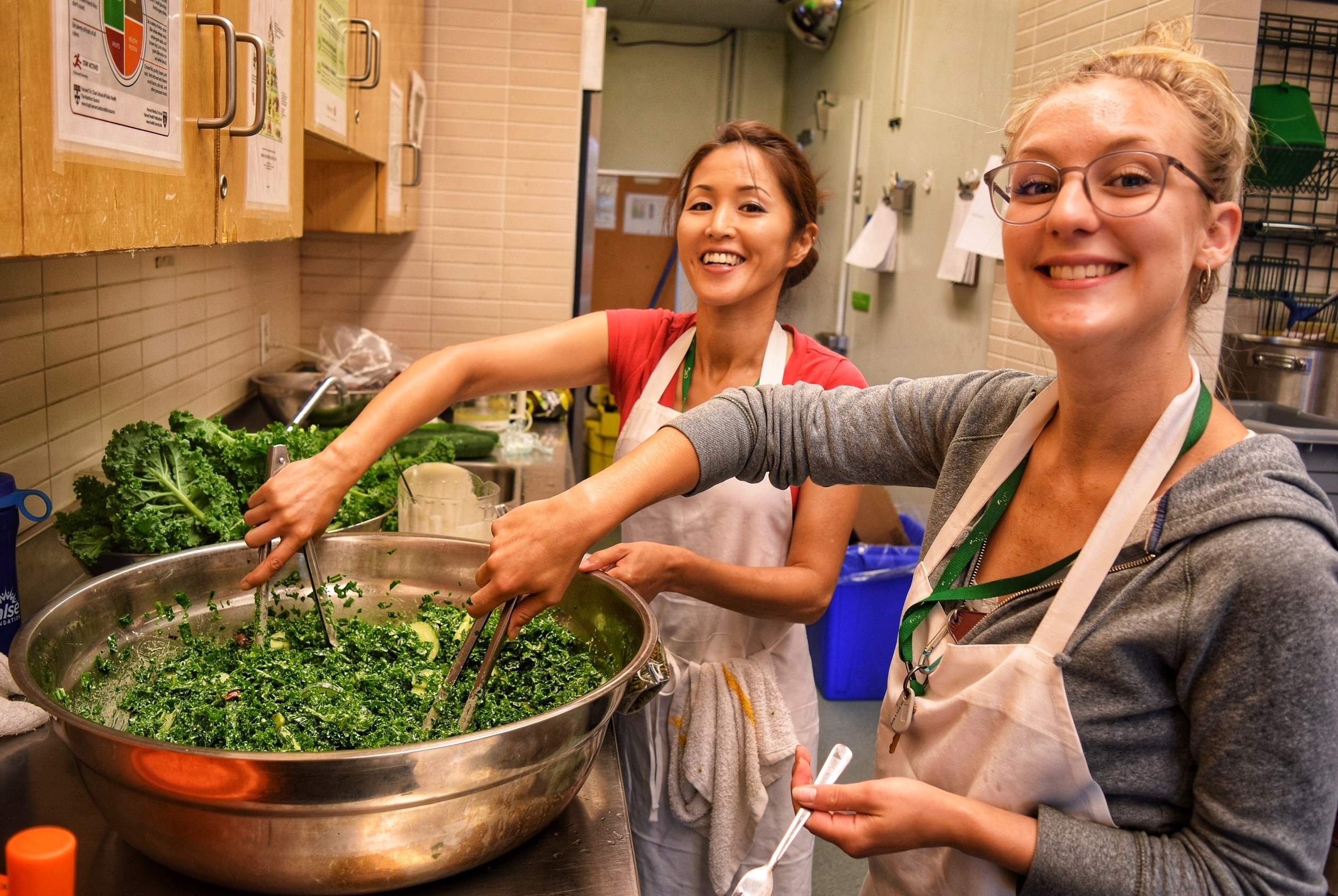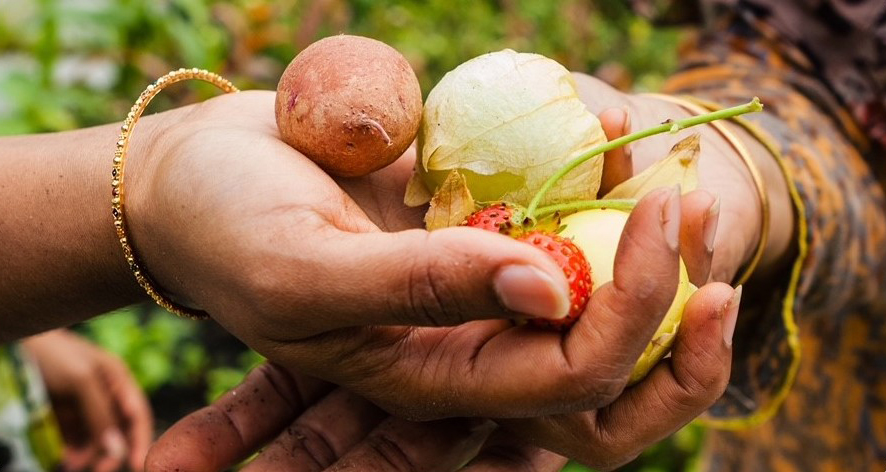 FREE, HEALTHY MEALS FOR OUR COMMUNITY
FREE, HEALTHY MEALS FOR OUR COMMUNITY
Providing healthy food for low-income people and families in Toronto
In Toronto, more families are going without healthy, nutritious meals. More households are using food banks. More people are feeling the squeeze of inflation and a lack of affordable housing – and they’re feeling it in their stomachs. More than 1/3 of Canadians between the ages of 18 and 34 are expected to access charities for essential services [like food] in the next few months (Swadden P, 2022). The winter months and the holidays are particularly hard times for people with low-income who are struggling to afford healthy food for their loved ones. Fred Victor’s Food Security Programs provide much-needed nourishment and dignity to folks, and for particularly vulnerable individuals, access to life-saving supports. When people come to Fred Victor for food, they will also find compassionate staff who can help them with housing, mental health, addictions, and employment and training services.
Necessity
Increased food security for low-income people and families in Toronto
Activity
Providing nutritious, free, culturally relevant meals to people and families in Toronto
Countable effort
Number of meals distributed in Regent Park and Moss Park neighbourhoods
Result
Increased health and mental health outcomes, and stronger community connection
Systemic effect
Decreased stress on health care system, stronger financial and social power in the community and ending the cycle of poverty
Background
There are 18,000 people (Chan McNally D., 2023) in Toronto experiencing homelessness, a number that has doubled since the start of the pandemic. At long-established Fred Victor locations in Regent Park and Moss Park, our Food Security program serves two of Toronto’s most vulnerable neighbourhoods. Many members of these communities have low-incomes and/or experiences of homelessness. We are witnessing a growing food crisis. In March 2022 alone, there were 1.5 million visits to food banks in Canada, the highest March usage on record (Food Banks Canada, 2022). As working people and others living on low-income face challenges keeping food on the table, the costs to society are great. In December 2020, research from Statistics Canada reported in the Toronto Star revealed that “adults in Ontario who are food insecure are almost twice as likely to end up in hospital due to deteriorating mental health than the general population” (Fawcett-Atkinson M., 2020). Food is a necessity of life, and it is incredibly tough for a person to stay alive, much less thrive, when one of their basic life needs are not met.
The good deed
Today’s GOOD DEED will help provide free, nutritious meals, 5 days a week for people living in Toronto’s downtown east communities of Regent Park and Moss Park. Fred Victor’s Food Security Program is serving 20,000 meals/month, an increase of 60% since 2020, and is welcoming more working families who are relying on this program to make ends meet. For people experiencing homelessness, our meal program also provides an entry point to washrooms, clothing, hygiene items, harm reduction supplies, and shelter and housing services. Your good deed will ensure: Free, healthy food for low-income people, leading to improved health and stability, five days a week; Increased access to mental health and addictions services, employment, training, and housing supports; Increased foods skills and positive social engagement through community gardens, community food events, and peer advocacy services.

About Toronto, Canada
Ottawa is the capital of Canada.
Toronto
biggest city in Canada:
6,255 million inhabitants
- almost 20% of these
live in food insecurity.
(2021)
The GDP per capita in Canada is equivalent to 3,48 times the world's average.
HDI
0.936
ranking 15th of 191 countries
(2022)
Toronto has 10 million trees. The name Toronto is derived from a Kanyen'kehà:ka (commonly known as Mohawk) word. It means “where there are trees standing in the water”.
About the organization and further information

Fred Victor
Website
Further information and source
- • Swadden P., November 16, 2022. Number of Canadians relying on charities increasing due to rising cost of living, poll suggests, CBC News, Canada.
- • Chan McNally D., January 11, 2023. A catastrophic increase in visible homelessness, Toronto Star, Canada.
- • Food Banks Canada, 2022. Hunger Count 2022, Food Banks Canada, Canada.
- • Fawcett-Atkinson M,. December 17, 2020. COVID-19 hurting Canadians’ food security and mental health: StatCan, Toronto Star, Canada




